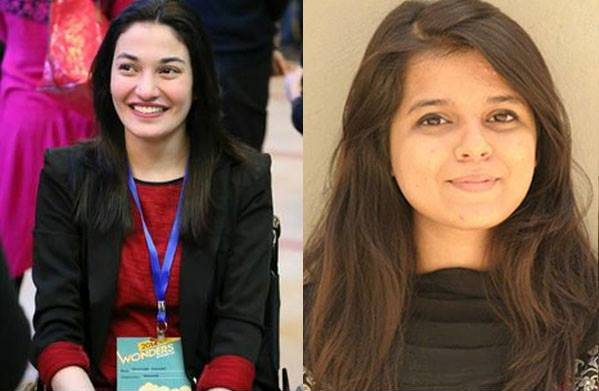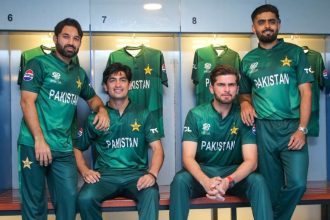Paraplegic artist Muniba Mazari and schoolgirl Ayesha Ishtiaque have been featured on the @)!%100 Women list for 2015.
The BBC 100 Women list focuses on sharing the stories of women who are often overlooked.
Muniba Mazari: fighting the taboo of disability
Mazari, 28, describes herself as an artist, motivational speaker and mother. She now speaks out about rights for disabled people in Pakistan.
The wheelchair-bound model and state television anchor lost the use of her legs in a car accident seven and a half years ago.
When she was hospitalised, she began painting, and says she hopes to spread the message of hope through her work.
“I always says it’s a blessing in disguise because it made me realise the potential that I had in me. This injury really helped me in proving myself… You just cannot judge a person on a wheelchair. We are strong.” she tells BBC.
“I was a housewife who was not allowed to do many things in life. Now I’m free to do everything. I did modelling, I’m into music. Now when they say I’m inspirational, I like to think these wheels are my wings,” she says.
“People were telling me you won’t be able to be a mother, you won’t be able to walk again, you won’t be able to live a happy life because you’re in a wheelchair,” she says.
She says she started painting to “add some colour” to the “sad, dull moments” she experienced.
“Using bright colours, I can probably hide that grief and sorrow in my work… This is the only way I can white it out and be myself,” she says.
She says her four-year-old adopted son has helped her feel complete. “I have learnt so much from this little boy,” Mazari says.
“If I lose hope around me, many people around me will lose hope.”
Ayesha Ishtiaq: ‘what makes a good girl?’
Ayesha Ishtiaq, 17, is “extremely passionate” about tackling sexism in Pakistani society and studying gender roles.
The Islamabad resident and schoolgirl also conducts talks on feminism and human rights with friends and aspires to study journalism and women’s studies in the United States before returning to Pakistan to help others.
Ishtiaq says she has been writing poems about these issues since primary school, and considers Taylor Swfit and Emma Watson role models.
“In our society we have a separate concept about what being a guy is and what being a girl is,” she says.
Ishtiaq narrates an incident highlighting what it is to be a girl in Pakistan: “I came to school and the principal had changed. I don’t think he knew even my name and the first thing he said to me was, ‘Tie your hair you are a girl’. I just stared at him. ‘What does that have to do with this?’ ‘You’re going to get distracted. You can’t focus on your studies if you have your hair open.'”
She remains hopeful for the future. “I think that things are changing now and a lot of the older generation is much more sexist than our generation… Many of my guy friends are starting to realise that a lot of us have the same rights as them,” she says.
She, however, maintains the difference between genders must be preserved and says, “You don’t have to fight anyone, you just have to be yourself and you just have to be more confident in who you are and not feel insecure about being a girl… You have to live up to it.”








